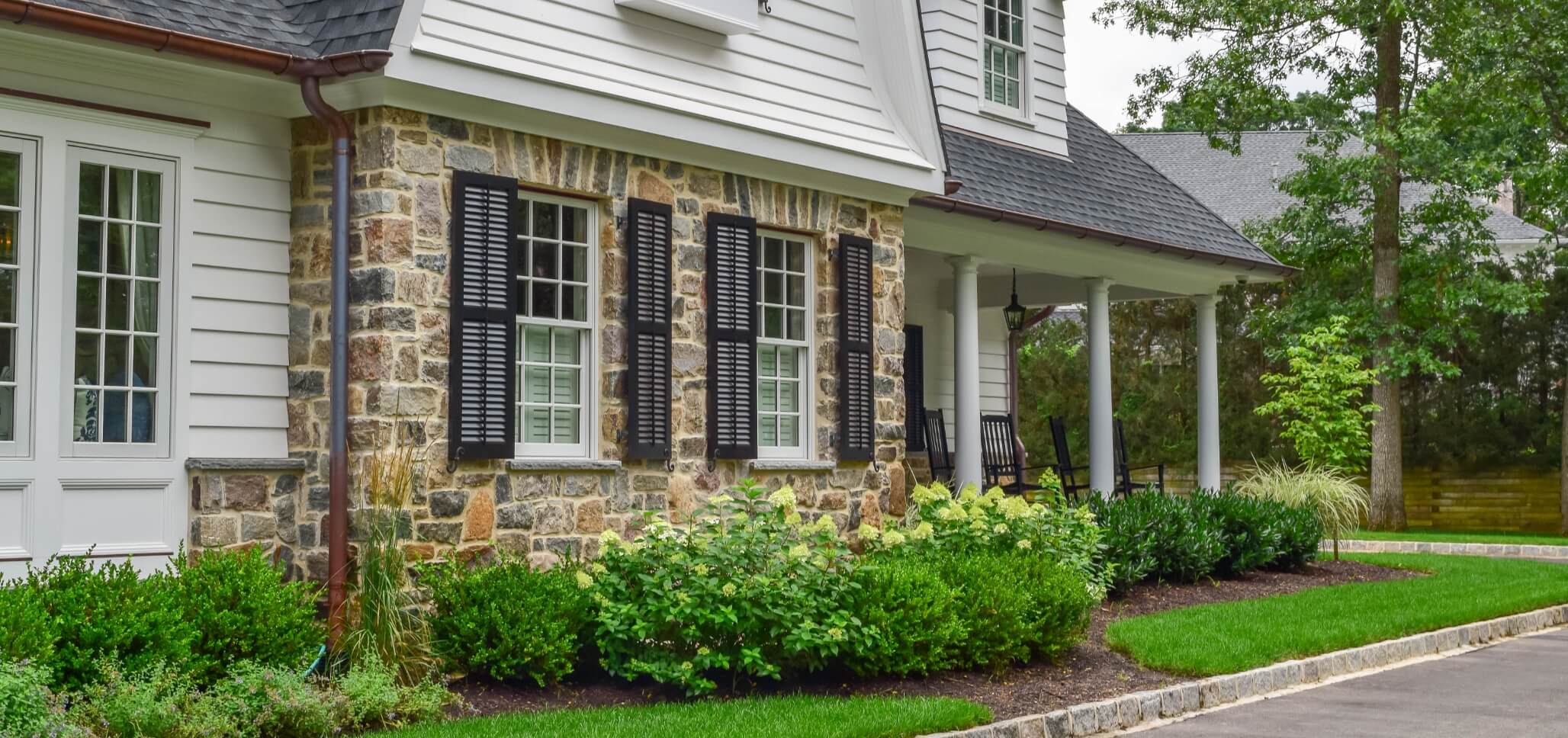
Stormwater is a major source of pollution in New Jersey and other northeastern states. In fact, the issue is so pressing that the New Jersey Department of Environmental Protection (NJDEP) has developed an extensive set of stormwater management rules to regulate municipal runoff.
But what are you doing about stormwater on your own residential property – are you contributing to the problem, or are you a part of the solution? It’s important for all New Jersey homeowners to take steps to implement their own stormwater management systems in order to protect the beauty and safety of our environment.
Where is My Stormwater Coming From?
During periods of heavy rainfall, or during the springtime thaw, local streets may become inundated with massive amounts of water. Although you may think that the runoff from your property is insignificant, when that amount is added to the stormwater from thousands of other properties, it can quickly become a major problem. Excess water may find its way off of your property from:
- Rooftops – Rainwater and melting snow/ice may quickly run off of your rooftop and through downspouts onto your yard or driveway, where it begins to accumulate and pool.
- Lawns – Without proper drainage systems in place, the ground can quickly become saturated, allowing excess water to collect and spill off onto the streets and/or other neighboring properties.
- Hard surfaces – Sloped driveways or walkways without drainage will immediately force runoff water out into the streets and/or neighboring properties, as well.
What Problems are Associated with Stormwater?
So what’s the big deal with stormwater, anyway? Three major problems are associated with excess runoff:
- Pollution – As stormwater travels across rooftops, driveways and lawns, it picks up numerous contaminants. These pollutants may include oil, grease, fertilizers, pesticides, pet wastes, soil, trash, etc. Eventually, this dirty water finds its way to local streams, lakes, rivers and oceans, causing harm to fish and other wildlife.
- Flooding – When the municipal stormwater management system is overloaded with excess runoff, flash flooding may occur. This causes harm to streams and wetlands, causes erosion and can damage homes and businesses.
- Water shortages – Without proper drainage, water cannot filtrate through the ground, preventing rainfall from replenishing groundwater and streams that are used for drinking water.
How Can I Improve Stormwater Management on My Own Property?
The more that individual homeowners can do to implement residential stormwater management systems, the better off we all will be. Here are two drainage solutions to consider for your property:
- Downspout & Lawn Flooding – If runoff water from your roof, or a saturated lawn are major contributors to stormwater on your property, it’s a good idea to talk to a trusted landscaping contractor about the installation of a complete drainage system. Generally, the best way to manage water from the downspout is by installing a catch basin and grate at the base of spouts, or low points on your property. Debris is filtered out, water passes through a pipe system,] and the majority is captured in a dry well type system that allows water to slowly percolate back into the ground, eliminating saturation. A minimal amount of excess water can then be drained into the municipal storm drains.
- Hard Surfaces – To prevent runoff from a flooded driveway or walkway, ask a reputable professional for information on how a channel drain can be installed into the concrete. From here, water is directed to a dry well type system, just as with a catch basin and grate stormwater management solution.
By finding the right stormwater management system(s) for your property, you can do your part to protect the environment and our natural resources.

